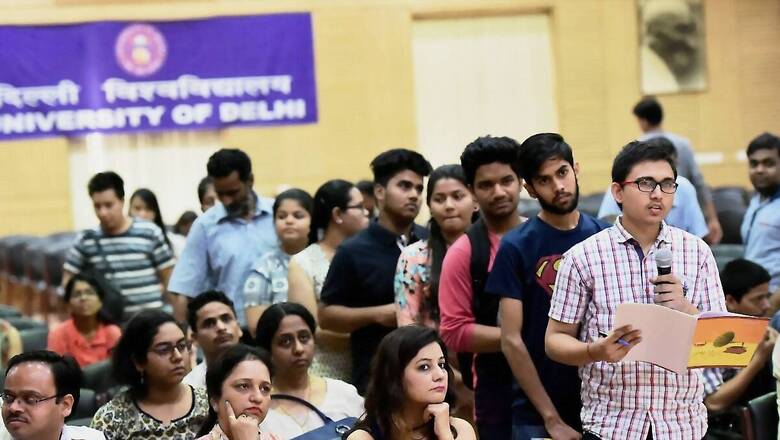
views
After a delay of almost a month, the National Testing Agency (NTA) finally announced results to the Common University Entrance Test (CUET-UG) on Sunday evening, allowing universities to prepare for admissions to undergraduate courses in the first semester even as the academic session is set to begin for all other semesters from August 1.
Results to CUET-UG, which is the common entry level exam for admission to undergraduate courses in all central universities in India as well as other participating universities and colleges, were initially expected to be declared by June 30. However, the results were delayed due to the NTA being mired in controversy over irregularities in the National Eligibility cum Entrance Test (NEET-UG) that is conducted for entry to medical courses.
The exam was held from May 15 to 29 in hybrid mode (both pen and paper as well as computer-based mode) and a re-exam was conducted for 1,000 affected candidates in the computer-based mode on July 19. This was the first time that the exam was held in the hybrid mode – pen and paper for all such subjects that had over 1.5 lakh registrations and CBT mode for the rest. The previous two editions of the exam were held in the online mode only.
Also, this is the first time that the NTA has not used normalisation of marks since all the subject papers were held in a single day for which raw scores have been issued.
The third edition of CUET-UG saw about 14,99,790 candidates registering for it, of whom 11,13,610 appeared. These candidates applied for various combinations of subjects across 283 central, state, and other participating universities for the 2024-25 academic session. The exam was held in three phases.
According to the NTA, the candidates were given an opportunity to challenge answer keys from July 7-9. In this duration, about 9,512 answer key challenges were received, out of which 1,782 were unique challenges. “The result of candidates is in the process of being shared with the participating universities,” it said.
Most universities, including Delhi University (DU), have had to change their academic calendar for those who will be joining the first semester due to the delay in declaration of results. While all other semesters and postgraduate students will begin classes from August 1, it will be only by the last week of August that the new students entering college will begin their academic session.
Faculty members in DU raised concerns on the delay in beginning the session for new students citing overlapping of exams of the third and fifth semesters while the first years will still be studying to complete their syllabus.
According to Prof Haneet Gandhi, Dean of Admissions, DU, the new session for all will begin on August 1, except for those joining in the first semester of college, who will tentatively begin classes from third week of August. “We are waiting for the CUET scores to be handed over to us, which usually takes up to two days. Once we have the integrated scores, we will start the second phase of the application process wherein students give their preference of courses as per their eligibility based on their scores. We will open the correction window on Tuesday where students can make any changes to their initial applications,” said Prof Gandhi.
In the initial phase of applications, around 1.75 lakh students had registered for admission to DU.
Since the merit list will have to be prepared based on raw scores this year, the university may have to use a lot of tie-breakers in case of same scores and same preference of course. “Since normalised scores are in six or seven decimal places, there is usually no need to apply tie-breakers, but in case of raw scores, which are in integers, if there are two or more students with the same score and the preference of programme they have opted for then it will require us to use tie-breakers to allot the seats,” said Gandhi.
This edition of the exam, like the previous ones, had its own issues, including the exam being cancelled on the first day for Delhi-NCR centres, complaints from students of not being able to download admit cards in time due to last minute updates from the agency on its official website as well as the long delay in announcing the results. Several candidates had even alleged errors in the provisional answer keys issued by the NTA following which a re-test was conducted for all such students whose grievances were found genuine by the agency.




















Comments
0 comment